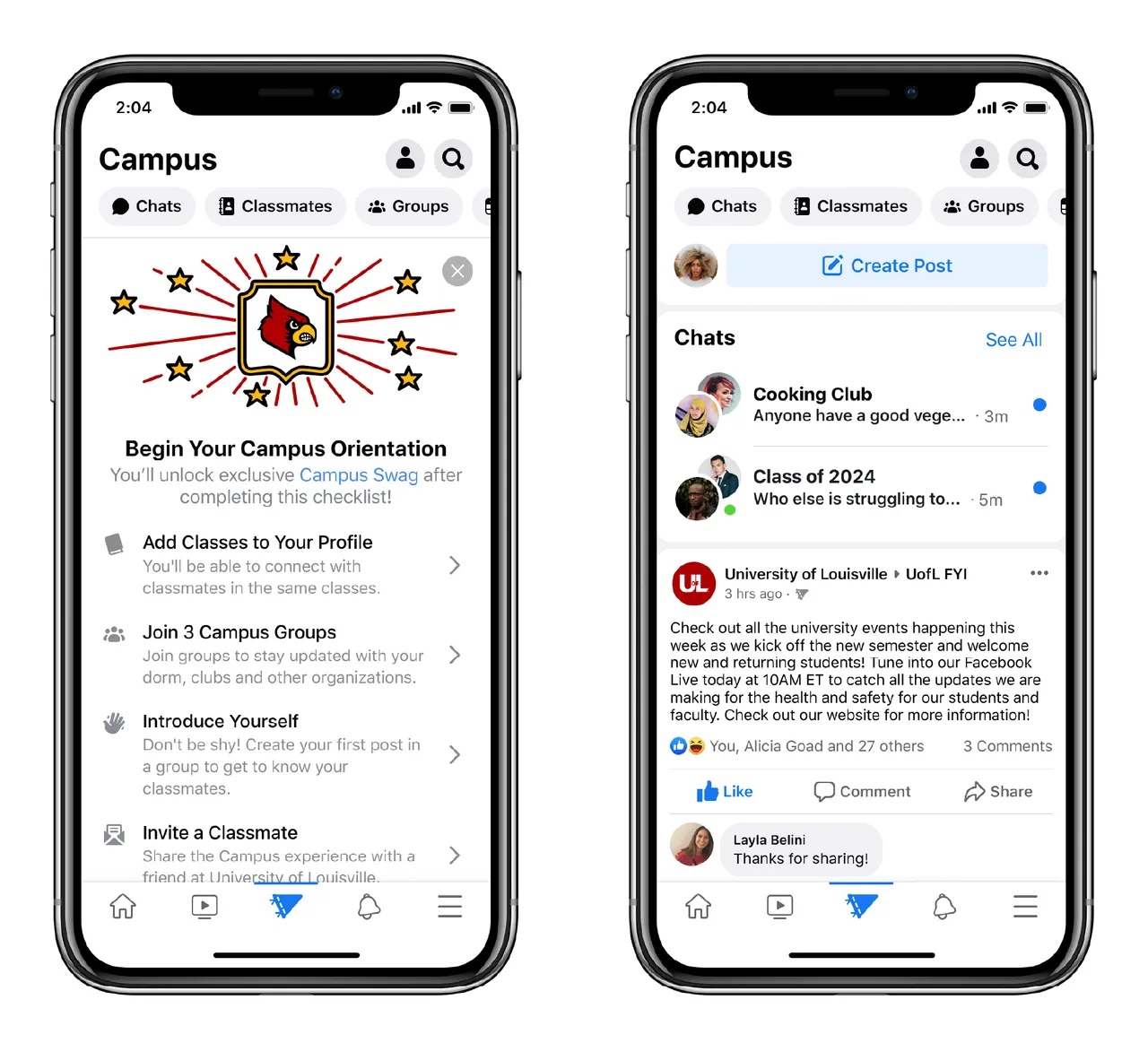
If you have seen the movie The Social Network, you would recognize the beginnings of Facebook. It was back in 2004 when Mark Zuckerberg and his group started creating Facebook, during that time it was only available to college students.
You could only create an account if you had a .edu email address. Now Facebook is going back to its roots by creating the Facebook Campus. Facebook Campus is a dedicated section of the Facebook app designed for students, with a Campus profile that’s different from their main Facebook profile. To create a Campus profile, all students need is their college email and graduation year.
It is an obvious attempt to woo the younger generation into the platform. The key features include Campus-only News Feed, Campus directory and New ways to chat
It will be initially launched on these campuses in the US: Benedict College; Brown University; California Institute of Technology; College of William & Mary; Duke University; Florida International University; Georgia Southern University; Georgia State University; Johns Hopkins University; Lane College; Lincoln University (Pennsylvania); Middlebury College; New Jersey Institute of Technology; Northwestern University; Rice University; Sarah Lawrence College; Scripps College; Smith College; Spelman College; Stephen F Austin State University; Tufts University; University at Albany – State University of New York; University of Hartford; University of Louisville; University of Pennsylvania; University of Wisconsin-Eau Claire; Vassar College; Virginia Tech; Wellesley College; and Wesleyan University. Students at these colleges can find Campus within the Facebook app.

I am using this crypto trading bot to automate my earnings. Try it for FREE! Just click the image below.

And if you have not done it yet, please join with me and sign up on the trusted crypto exchanges below. You'll love it, I promise you.


